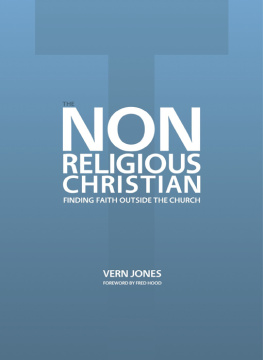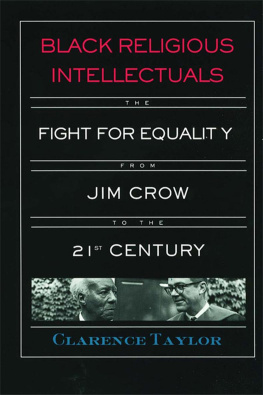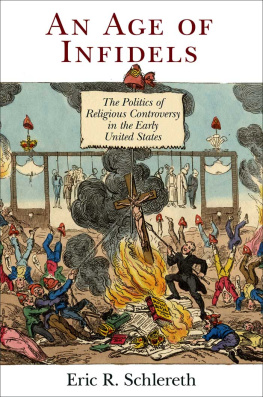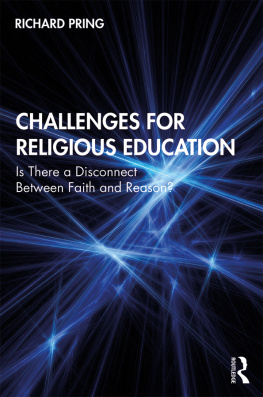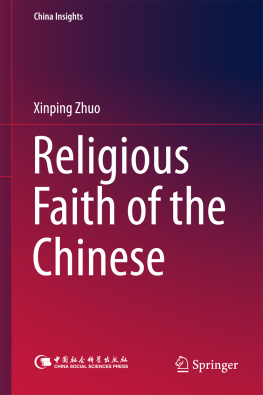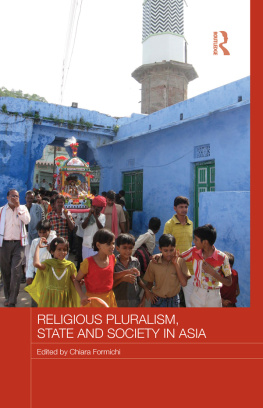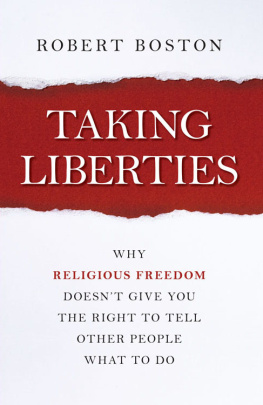SHALL THE RELIGIOUS INHERIT THE EARTH?
ERIC KAUFMANN is Reader in Politics at Birkbeck College, University of London. In 20089, he was a Fellow at the Belfer Center, Harvard University. He is a frequent contributor to Prospect and other publications.
DEMOGRAPHY AND POLITICS IN THE TWENTY-FIRST CENTURY
ERIC KAUFMANN

First published in Great Britain in 2010 by
PROFILE BOOKS LTD
3A Exmouth House
Pine Street
Exmouth Market
London ECIR OJH
www.profilebooks.com
This eBook edition published in 2010
Copyright Eric Kaufmann, 2010
The moral right of the author has been asserted.
Typeset by MacGuru Ltd
info@macguru.org.uk
This eBook is copyright material and must not be copied, reproduced, transferred, distributed, leased, licensed or publicly performed or used in any way except as specifically permitted in writing by the publishers, as allowed under the terms and conditions under which it was purchased or as strictly permitted by applicable copyright law. Any unauthorised distribution or use of this text may be a direct infringement of the authors and publishers rights and those responsible may be liable in law accordingly.
A CIP catalogue record for this book is available from the British Library.
eISBN 978 1 84765 194 5
CONTENTS
For my parents, Steven and Carmen
ACKNOWLEDGEMENTS
I am indebted to many individuals, especially Paul Morland, who read earlier drafts in meticulous detail. My wife Fran provided helpful feedback on earlier drafts and presentations. I also met, exchanged ideas or collaborated with Vegard Skirbekk and Anne Goujon of the World Population Program at the International Institute of Applied Systems Analysis (IIASA), Jack Goldstone, Rich Cincotta, Elliott Green, Monica Toft, Jonathan Githens-Mazer, Rich Sosis, Jonathan Paris, Michael Lind, Chris Caldwell, David Voas, Faissal Hameed, Conrad Hackett, Peter Turchin, Michael Blume, Ehud Eiran, Nelly Lahoud, Shiraz Maher, Jim Guth, Rod Stark, Paul Froese, Byron Johnson, Aviel Roshwald and Mark Rieff. My editor at Profile, Andrew Franklin, has been a constant source of encouragement and constructive criticism. Needless to say, they may not agree with much, if anything, of what I have written.
This work could not have been completed without the generous support of my university, Birkbeck College, University of London. In addition, I was fortunate enough to obtain a grant from the Economic and Social Research Council (ESRC)s Understanding Population Trends and Processes (UPTAP) programme, which laid the empirical foundations of this research. I benefited from a one-year fellowship from the Belfer Center, Kennedy School of Government, Harvard University, where I greatly deepened my understanding of religion and politics. A Leverhulme Trust grant helped make this possible. Finally, my understanding of religious demography has been greatly enhanced by those at the World Population Program, IIASA, in Laxenburg, Austria.
My website on the political demography of religion contains links to relevant sites and academic articles, papers and presentations of mine which delve into more detail on the data and methodology behind sections of the book: http://www.sneps.net/RD/religdem.html .
INTRODUCTION
A bomb rips apart a commuter train in Madrid. Scores are killed in a suicide attack in a crowded market in Baghdad or Peshawar. Another coalition soldier dies in Afghanistan. As a Canadian resident of London, Im painfully aware of the steady drip of coalition casualties in both countries. The threat of terrorism is never entirely absent. Behind the scenes, Western societies wring their hands over profound cultural questions which cut to the core of who we are. How much should we bend liberal principles to accommodate religious practices? Is Islam offlimits to comedians and artists? How can we achieve security without trampling on suspects freedom from detention without trial? Can we attain a measure of unity in the face of growing diversity?
If I am correct, what we have witnessed over the past decade is the thin edge of a rising wedge which transcends Islam. Simply put, this book argues that religious fundamentalists are on course to take over the world through demography. We have embarked on a particularly turbulent phase of history in which the frailty of secular liberalism will become ever more apparent. In contrast to the situation today, the upsurge of fundamentalism will be felt more keenly in the secular West than in developing regions. This is because we are witnessing the historic conjunction of religious fundamentalism and demographic revolution.
The world is in the midst of an unprecedented shift from population growth to decline. Europe is leading the way, but East Asia is aging more quickly and may overtake it, while other parts of the world especially India, Southeast Asia and Latin America are treading the same path. These changes are driven by rising prosperity, womens education, urbanisation and birth control. Europes fertility rate i.e. the number of children the typical woman is expected to bear over her lifetime has been below the replacement level for four decades. As a result, its native population has begun to fall in absolute terms a slide which will accelerate over time. World fertility is predicted to sink below the replacement level by 2035. Global population decline will follow several decades later.
It may seem as if the world is in danger of being depopulated and left to the animal kingdom. People are increasingly failing to replace themselves and the openly non-religious among them are displaying the lowest fertility rates ever recorded in human history: sometimes less than one child per woman. However, this demographic transition relies on peoples desire to better themselves in this world, not the next one. Those embracing the here and now are spearheading population decline, but individuals who shun this world are relatively immune to it. Everywhere one looks, religious fundamentalists are successfully bucking the trend towards fertility rates below the magic 2.1 children per woman. Even if everyone else died off, homo religiosus would endure. In the West, fundamentalism is also growing because the religion of uprooted immigrants from demographically expanding parts of the world is being radicalised by its collision with Western secularism. Identity politics reinforces and protects faith.
Fundamentalism is a modern response to the threat of secularism. In their quest for religious certainty, Christian, Muslim and Jewish fundamentalists have elevated the most world-denying, illiberal aspects of their traditions to the status of sacred symbols. One badge of fundamentalist belonging is outlandish dress be this the ultra-Orthodox Jewish sidelock, Salafi burqa or Amish hat. Often these innovations are quite recent. Fundamentalism thumbs its nose at secular modernity in other ways, too, such as by affirming traditional womens roles. Large sometimes unlimited family sizes are typically part of the package, as exemplified by Americas Quiverfull Protestants. These practices mark out the true believers from the backsliders who have supposedly compromised, to a greater or lesser degree, with secularism.
Fertility rates were also driven by the need for labour on the farm and insurance in old age, neither of which matters in wealthy societies. Finally, those with access to contraception controlled their fertility better than those without it. Today, however, people especially in developed countries are largely able to choose the number of children they have. Why they select as they do depends more than ever on their cultural values and lifestyle choices. This increases the fertility gap between seculars and fundamentalists, paving the way for revolutionary population shifts.
Next page

